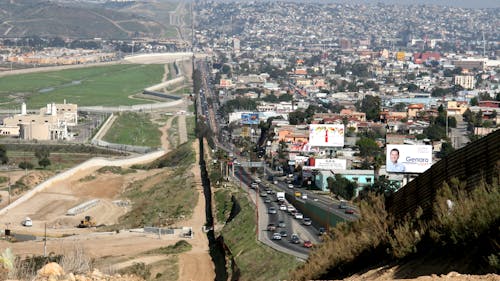Rutgers offers new course on issues regarding US-Mexican border, immigration

In a new fall course titled "Wars, Wayfarers and the Wall: A History of the US-Mexican Border," distinguished professor in the Department of History Camilla Townsend will be discussing the shifts in the past three decades on perceptions in the US-Mexican border, current policies and whether barring illegal immigration decreases crime and unemployment, according to Rutgers Today.
“I am not insisting that the students draw a certain and definitive conclusion to these questions, but I do want them to look at real evidence and think seriously about it before they make political decisions," Townsend said.
She hopes to challenge students to understand the history of the border, as well as find solutions based on research for current immigration issues.
The most recent presidential election, which she said was when the country's political divide reached a breaking point, was the inspiration for her course. She wanted to spur critical thinking about controversial issues such as the border wall and Supreme Court decisions on immigration, like the most recent decision allowing asylum seekers at the border to be turned away.
The timeline for the course begins in the early 1800s, when southern states such as Arizona, California, New Mexico and Texas were still Mexican territory. It then teaches about how ideas toward the border changed when these territories became American states and with the economic policies of the early 1900s, which entailed the United States giving incentives to Mexican workers for cheap labor.
In the course, students will read news articles and statistics on socioeconomic data from both the past and present, read narratives written by and about immigrants and have discussions on what it means for an immigrant to be naturalized.
The students will also participate in a scenario where they have to make decisions in a fictional meeting in a "sanctuary" city, according to Rutgers Today. In the simulation, they will argue for both sides, all affecting the lives of migrants and citizens. These simulations will go into economics, art history, Aztec poetry, sociology, political science and journalism and media studies.
“Every decision they make has to be backed up by facts and critical thinking. The fictional narrative and decision-making assignments will help them consider another important aspect of this issue, and that’s the lasting impact these decisions have on individuals and families,” Townsend said. “We as professors can do our part to help in this issue, and that is to help them understand that they need to work together to make lasting change.”



